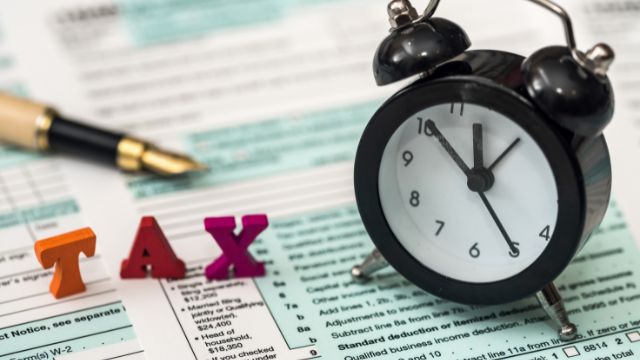As a citizen of any country, you pay different types of taxes. These taxes can be classified into direct tax and indirect tax. Paying these taxes is not discretionary, and the calculations are based on the slabs given by the government. Today, we are going to talk specifically about direct taxes. They form a source of revenue for the government, which is invested back into the economy to support services & development work. Let us start by finding out the exact definition of direct tax. Go ahead and check out the details in the section below.
🤔 What is Direct Tax?
Direct taxes are a type of tax which are paid by an individual to the government directly. An example of direct tax can be income tax and property tax. Such taxes are directly computed based on the value of the underlying asset or the ability of the individual to pay taxes. The higher the capacity, the higher the tax would be. For example, in the case of an income tax, the tax rate increases with the slab on which the income falls. Similarly, the property tax is based on the size and value of the property. These are the main source of revenue for the government. You can now move on to the next section and check out the pros and cons of direct tax.
👍 Advantages of Direct Tax
The advantages of the direct tax are listed in the section below.
- Promotes Equality – The main idea behind the direct tax is to tax the rich and give it to the poor. You will notice that every country has a higher tax rate for a higher income slab. In such a case, the main idea behind the direct tax is to promote equality. The government uses this tax to fund critical projects like the distribution of commodities to the people in BPL at a subsidized rate.
- Government Revenue – Direct taxes are a significant source of revenue for the government. As mentioned earlier, the government uses these taxes to offer critical schemes to the people. An example of this can be the covid-19 vaccination program in India. It was the largest vaccination program in the world, and the government offered free of cost vaccination to every citizen of the country. So, the government uses tax revenue for the benefit of the people.
- Fixed Taxes – The tax rates are fixed and are announced well in advance before the beginning of the financial year. This way, people can alter their consumption patterns and ensure that they make provisions for taxes throughout the year. These tax rates remain constant throughout the year.
- Rebates – The government also offer rebates in some instances. For example, for paying the advance property tax, you would usually get a discount of a certain per cent. You will also get rebates in income tax for investments in fixed deposits, mutual funds, provident funds & medical insurance. These rebates can reduce the burden of direct taxes on the individual.
- Advance Taxes and TDS – It can be difficult to pay all the taxes at once, so the government offers advance tax payment and tax deduction at the source. If you are an employee, you will notice that the taxes are deducted from your salary. This ensures that it doesn’t create a lumpsum burden on you.
- Easy to Calculate – Direct taxes are also easy to calculate. You can key in the value on the tax calculators during the tax payment, and your job is done. You will get the payable tax amount. In addition, you would also be able to make this payment online.
Also Read: Tax Planning Advantages and Disadvantages
👎 Disadvantages of Direct Tax
We have shared the disadvantages of direct taxes in the section below.
- Double Taxation – Most of the time, you pay taxes on income and expenditure. You should factor in the indirect taxes that you are paying, and this pushes the tax payments by a huge percentage. This double taxation policy also pushes the living cost for you.
- Tax Evasion – Because of the higher tax rates, you will notice that people are not paying the right amount of tax. They hide their actual income, and they pay less amount of taxes by using the loopholes. The income tax on personal income can be as high as 30%. So, the direct taxes eat away a significant portion of your salary.
- Lack of Benefits for Tax Payers – The tax benefits for the taxpayers are not very evident. There is no dedicated privilege for direct taxpayers. They still need to struggle for resources and everything else. The lack of benefits for taxpayers is a problem.
- Pushes the Cost – The direct tax pushes the cost of ownership of an asset. You are paying property tax in addition to the cess, maintenance charges, bills and other such charges. Because of this, the overall cost of ownership increases. If you buy a property for investment, your returns will also suffer.
Also Read: TDS Advantages and Disadvantages
Direct Tax Frequently Asked Questions
Q1. What Are Direct Tax Rates?
Ans: The direct tax rate varies depending on the type of tax. The government of India declares these taxes every year during the annual budget session. The income tax slabs and rates change; the same is true with the rebates applicable to the income tax. Property taxes have been stable for a while now. In addition, the government offers an additional direct tax rebate in case of a senior citizen. All the government tax portals will help you calculate the taxes, and you will also be able to check the updated tax rates on these portals.
Q2. What Value Do Direct Taxes Add To India’s Economy?
Ans: Direct taxes are an important part of the Indian economy and they help fund the government’s initiatives to provide public goods and services, reduce the budget deficit, and support various social welfare programs. By paying your fair share of direct taxes, you’re contributing to the growth and development of your community and country.
Q3. Does An Unemployed Person Also Need To Pay Direct Tax To The Government?
Ans: Even if you’re currently unemployed, you may still be required to pay direct taxes if you have taxable income from other sources such as investments or rentals. So, it’s important to stay informed about your tax obligations and pay your fair share, even if you’re in a tight spot.
Q4. Are Direct Taxes Different For Businesses And Individuals?
Ans: Direct taxes for businesses and individuals can be quite different, but both are equally important. While businesses may be taxed on their profits, individuals are taxed on their income. The tax rate and calculation of taxes may also vary between the two. It’s important to understand the tax rules that apply to your specific situation, whether you’re a small business owner or just living life as an individual.
Q5. What Are The Consequences Of Not Paying Direct Taxes?
Ans: Not paying your direct taxes can have serious consequences, including fines, penalties, legal proceedings, and even imprisonment. Additionally, not paying your taxes can damage your credit score and limit your ability to access loans or financial services in the future. So, it’s always a good idea to stay on top of your tax obligations and pay your fair share, to avoid any trouble and enjoy peace of mind.
Final Verdict
This was all about direct taxes. We hope the information helped you understand direct taxes and the advantages of these taxes. There is undoubtedly some downside to direct taxes, and there will always be some. However, the government is trying to work on plugging the loopholes. Direct taxes are very important when it comes to keeping the economy running position and offering services to the less privileged people. At the same time, we strongly believe that direct taxes should be reduced to encourage more people to pay these taxes.
Related Topics:
- VAT Tax Advantages and Disadvantages
- GST Tax Advantages and Disadvantages
- ITR Filing Advantages and Disadvantages















